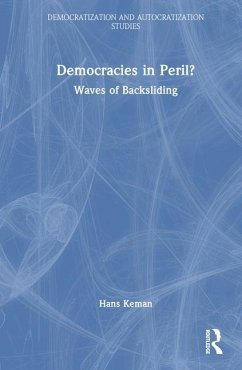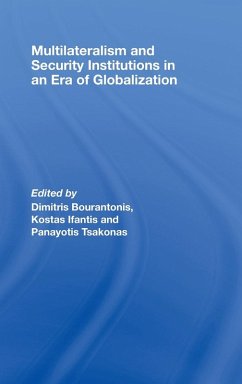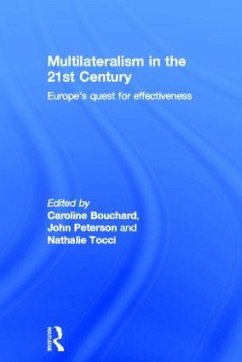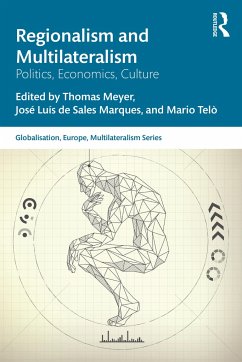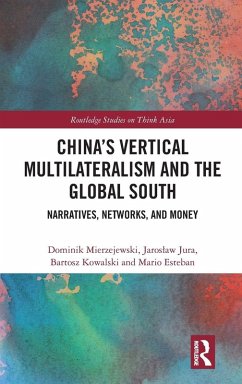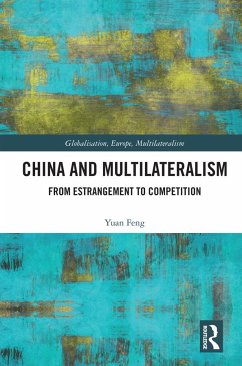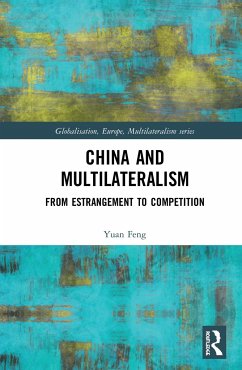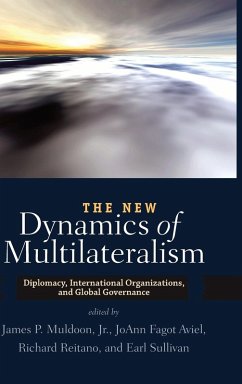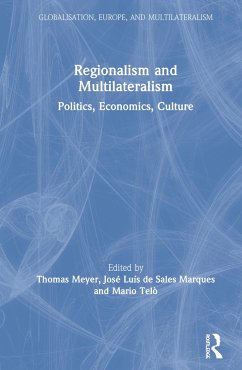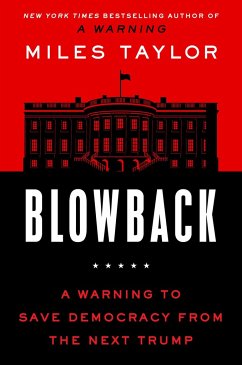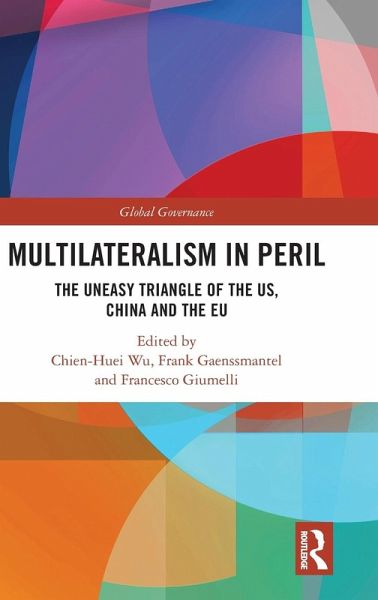
Multilateralism in Peril
The Uneasy Triangle of the US, China and the EU
Herausgeber: Wu, Chien-Huei; Giumelli, Francesco; Gaenssmantel, Frank
Versandkostenfrei!
Versandfertig in 1-2 Wochen
168,99 €
inkl. MwSt.
Weitere Ausgaben:

PAYBACK Punkte
84 °P sammeln!
This collaborative work brings together international lawyers and political scientists to explore whether and how the retreat of the US, and the simultaneous rise of China, affect the dynamics of multilateralism to which the EU claims to adhere. It focuses on the trilateral interaction between these three actors and the policy impact their interactions have in specific multilateral settings and examines cooperation, competition and confrontation of these three actors in key international organizations such as the WTO, UNESCO, Human Rights Council and UNCLOS, NATO, the ASEAN Regional Forum and ...
This collaborative work brings together international lawyers and political scientists to explore whether and how the retreat of the US, and the simultaneous rise of China, affect the dynamics of multilateralism to which the EU claims to adhere. It focuses on the trilateral interaction between these three actors and the policy impact their interactions have in specific multilateral settings and examines cooperation, competition and confrontation of these three actors in key international organizations such as the WTO, UNESCO, Human Rights Council and UNCLOS, NATO, the ASEAN Regional Forum and the World Health Organization in times of Covid-19. It also addresses their approaches and attitudes toward international humanitarian norms and the peace process in the Middle-East. This book offers an insightful exploration of the future of multilateralism under the impact of the Trump administration and probes the future of the liberal international order. It will provide excellent reading material on current affairs for both graduate and undergraduate students in international law and international relations, in particular for courses relating to international organization, multilateralism, or the US, China and the EU in international affairs. For experienced researchers the book proposes in-depth studies that relate to major debates in the disciplines of international law and international relations.





